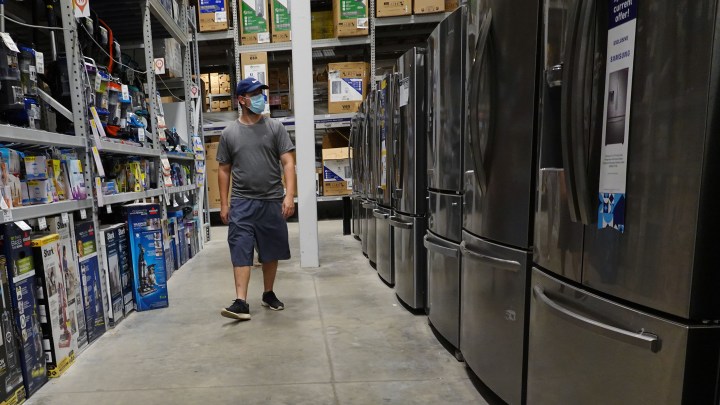
Consumer sentiment offers another window into economic recovery
Consumer sentiment offers another window into economic recovery

The latest survey on consumer sentiment from the University of Michigan comes out today, following news of high inflation earlier this week. Inflation was one of consumers’ top concerns in last month’s survey.
Still, consumer outlooks rose in June and are expected to have risen again in July. Higher income people surveyed last month were optimistic about the year ahead. Survey researchers have warned, however, that lower income groups and older people could feel the effect of inflation first.
One question in the consumer sentiment survey asks people about the big things they buy for their homes, like furniture, TVs and stoves. If researchers got Mary Johnson on the phone, she’d have a lot to say on the topic.
“My refrigerator died last summer. So I ordered the same thing I had, I just wanted to replace it,” said Johnson, a policy analyst with The Senior Citizens League. “And then the order got canceled a few times.”
Johnson got the fridge in the end — after months of delays — but wound up paying more than she was expecting. Over the last few weeks, she’s been flooded with emails from other seniors thinking the same thing.
“There’s a growing anxiety, is the way I would put it, and I’ve not had this degree of personal phone calls and emails from people before,” she said. People are getting worried about how far their incomes will go, especially those dependent on savings and social security.
These concerns may not translate to dampened consumer sentiment, according to University of Pittsburgh professor Stefania Albanesi. It depends on how long inflation lasts.
“If it becomes widespread enough, of course, you know, consumers in the public, will learn that there is an inflationary process going on,” Albanesi said. Then, she said, consumers might start reacting and stocking up, further driving up prices.
That could be troubling for all consumers. But Albanesi points out that many lower income people have established some savings over the last year. Those households have had other reasons to be optimistic, said Lindsay Owens with the advocacy group Groundwork Collaborative.
“I think what we’re seeing right now is strong wage growth for the bottom of the income distribution for the first time in, in some cases, decades,” she said.
If consumer sentiment stays positive, Owens said, that could be a sign those wages are making enough of a difference to offset rising prices.
There’s a lot happening in the world. Through it all, Marketplace is here for you.
You rely on Marketplace to break down the world’s events and tell you how it affects you in a fact-based, approachable way. We rely on your financial support to keep making that possible.
Your donation today powers the independent journalism that you rely on. For just $5/month, you can help sustain Marketplace so we can keep reporting on the things that matter to you.

















